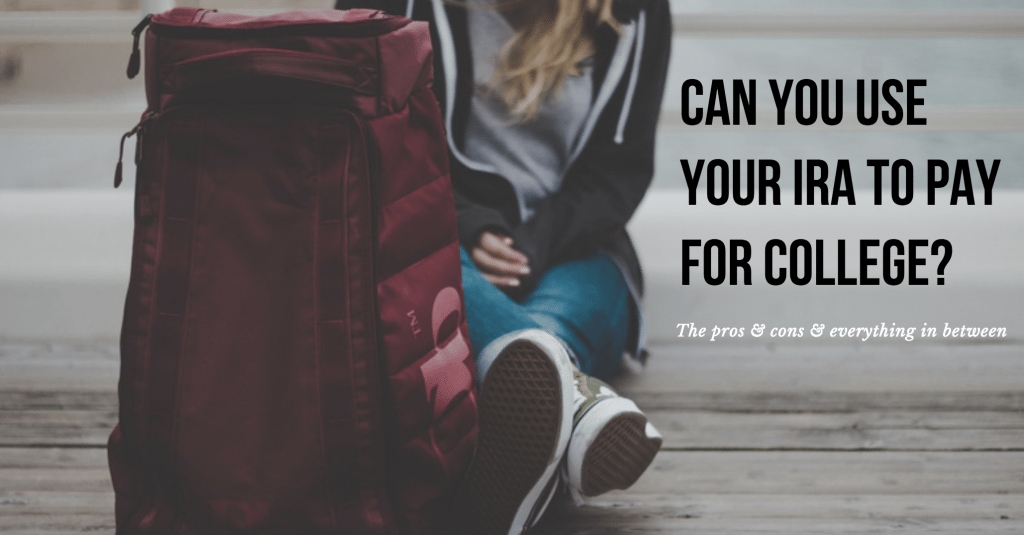
Can You Use Your IRA to Pay for College?
It’s no secret that college expenses add up quickly. Nowadays, paying for college takes time and careful consideration of a family’s finances. Good news is there are plenty of saving plans available to help pay for college – the most popular one being the 529 Plan. The biggest appeal of the 529 Plan is it offers tax free growth when used to fund qualified higher education and high annual contribution limits. However, there are a few scenarios (one in particular) where a Traditional or Roth IRA may be a viable option to consider.
The most common scenario occurs when there hasn’t been any money set aside for your child approaching college – not in the budget, simply overlooked, unsure of a college savings account benefits, or any number of other reasons – but you have an IRA or Roth IRA account and you feel it’s important to help your child pay for their college education.
In this case, there is an exception that allows IRA distributions for qualified higher education expenses like tuition, books, supplies, fees and room and board, etc. as long as the student is enrolled in a degree program. This exception allows you to avoid the 10% early withdrawal penalty on IRA distributions if you are under the age of 59.5. If you are older than 59.5, this exception does not apply to you as there no penalties to withdraw from your IRAs at that age.
Balances in IRAs and Roth IRAs are not used for financial aid need analysis purposes and should not affect financial aid eligibility. However, withdrawals from IRAs are generally treated as income and may affect eligibility. Even withdrawals from Roth IRAs are treated as untaxed income and may affect needs based financial aid eligibility the year following the withdrawal.
So basically you have a traditional IRA being used as a tax-deferred college savings vehicle. If you are able to limit your withdrawals from a Roth IRA to contributions only, the distribution is not only tax free, but penalty free as well when used for qualified higher education expenses.
I want to emphasize that prior to considering this option, it is absolutely imperative you thoroughly review your finances to make sure this will not put your financial future and retirement plans at risk. I’m not an advocate of borrowing or withdrawing from retirement accounts for any reason outside of providing for life in retirement, and I strongly advise against placing your financial future in jeopardy to fund your child’s college education. I have seen this happen far too often with very poor outcomes – becoming a financial burden to the kids later on, pushing back retirement or worse, not being able to retire at all. I have also seen folks withdraw significant portions of their IRAs to fund their kid’s college, only to see them drop out.
To be clear, I am not suggesting student loans. However, the fact is students can borrow money for college and there are no retirement loans available, as far as I know. If your child needs to take out a loan, by all means consider helping them pay off their student loans once completing their education. Whatever you decide to do, make sure you prioritize evaluating the long term effects this will have not only on your finances, but theirs as well.
Other important considerations include:
- Distribution and expenses must happen in the same years
- Qualified educational expenses can only be used towards one educational tax benefit (no double dipping!) Ex: you can’t take a penalty-free IRA withdrawal and use the same expense toward a Lifetime learning tax credit.
- You can’t replenish the funds you withdrew from your IRA account except by normal annual contributions, which are subject to annual limits
If you’d like to discuss your options, book a call using this link and we’ll be in contact with you shortly.








